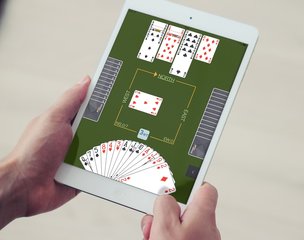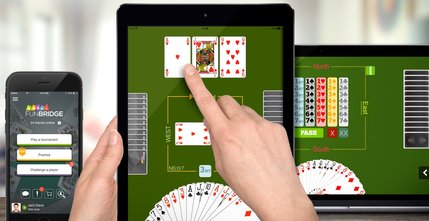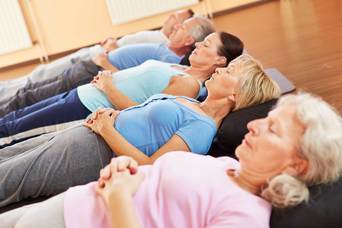|
Of the 35 million adults in the United States who are over the age of 65, approximately 6.5 million suffer from depression. If you have a parent or loved one who is exhibiting signs of depression (feelings of hopelessness, loss of interest in activities they used to enjoy, increased fatigue), it can be hard to know what to do to help them feel more like their old self. These four tips are a great place to start when it comes to caring for a loved one who’s battling depression. 1. Encourage Physical ActivitySeveral studies show that regular physical activity has a major impact on older adults’ happiness and general health. Not only does exercise aid in the production of endorphins, chemicals that minimize pain and promote positive feelings, but it’s also essential for seniors who want to maintain their independence. Seniors who exercise on a regular basis -- specifically those who lift weights and focus on building strength -- are less likely to suffer from falls and fractures that can severely limit their mobility. 2. Encourage Regular Social InteractionRegular social interaction is also important, especially for seniors who live alone. In addition to helping seniors feel happier and more optimistic, some other benefits that come with an active social life include:
There are lots of ways to help seniors get more social time. Arrange for family members to drop by on a regular basis, or encourage them to attend events at a local senior center. 3. Invest in Tools that Promote IndependenceIf they struggle with physical limitations caused by illness or aging, it’s easy for seniors to start to feel depressed and isolated. One way to minimize these feelings is to outfit their home with tools that promote independence and make daily tasks easier. Some tools that many seniors can benefit from include:
4. Seek Professional HelpMany seniors are hesitant to seek out a psychiatrist on their own to treat their depression, but you should still try to encourage your parent or loved one to sit down with a professional and talk about what they’re experiencing.
You may also want to see if they’re willing to let you participate in the appointment with them. Seeing a psychiatrist might be less intimidating if you’re present. You’ll also be familiar with the psychiatrist’s recommendations and can make sure they’re following their advice and taking medications as prescribed. It can be hard to see a parent or loved one struggle with depression. But, fortunately, there are lots of ways that you can help them feel better. Be sure to keep these tips in mind and don’t forget to be on the lookout for early signs of depression.
0 Comments
Meditation is a Mainstream Movement
Padmasree Warrior, the CTO of Cisco Systems, claims meditation is “Almost like a reboot for your brain and your soul,” She also says “It makes me so much calmer when I’m responding to emails later.” Maybe you have tried to meditate at some point, or maybe this is the first article you are reading about it. Regardless of your familiarity with meditation, here are five great benefits of meditation for boomers and retirees just like you. Five Great Benefits of Meditation for Boomers and RetireesThere are many wonderful benefits of practicing meditation in general. However, there are five really great benefits of meditation for boomers and retirees. They are:
Choosing the Type of Meditation That’s Right for You There are many different types of meditation. The only way to know which type of meditation is right for you is to try different types until you find the one you feel works best. There are many organizations and groups that instruct people just like you in meditation techniques. One of these organizations is The Human Radio Educational Research Project. The Human Radio is dedicated to helping its students work on their own evolutionary development through a proprietary, deliberately scaffolded visualization meditation curriculum. This organization works with folks of all cultural, religious, ethnic and socioeconomic backgrounds promoting human empowerment and compassion both inside of one’s self, as well as with one’s human brothers and sisters near and far alike. They rely on donations and the money they bring in from their services to sustain their global presence. You can learn more about The Human Radio by clicking here. You can also try out their introductory visualization meditation exercise in the comfort and privacy of your home on their website, or on YouTube by clicking here. No matter what person or organization you choose to help you learn meditation, or what type of meditation you find works best to enhance and enrich your life, the mounting body of scientific evidence only keeps bolstering what many people have intuitively known for thousands of years…. that we are all the masters of our own destinies. People who choose to take the reins of their own destinies with the help of meditation are facilitating their own holistic health and happiness above and below, inside and out alike. *Retired Brains and The Human Radio Educational Research Project do not claim meditation of any type can diagnose, treat or cure any illness, disease, ailment or condition. The information contained in this blog article is anecdotal based on the available body of clinical evidence supporting the effectiveness of certain types of meditation. Links to this evidence can be found throughout this article. As with any lifestyle choice you make, be sure to do your own research before beginning or altering your daily routine…. and if need be, to consult a professional in order to help you decide the best course of action for your own life where meditation, or any other prescriptive activity is concerned.
What is Bridge?
The Benefits of Playing BridgeHere at Retired Brains, we love helping you find activities that add value to your life. This includes leisurely pursuits that keep you socially active and mentally sharp. In this spirit, we are going to discuss the benefits of playing bridge, in order to help you decide if bridge might be a good activity to partake in. Some of the many benefits of playing bridge include:
Now, it is no secret that playing bridge is akin to mental gymnastics. In this regard, stimulating your brain regularly is believed to be an important component in warding off diseases including Alzheimer’s and Dementia. However, boosting immunity to ward off illness was not necessarily considered to be one of the benefits of playing bridge until the early 2000’s, when Professor Marian Diamond (no pun intended!) undertook an experiment at the University of California Berkeley with 12 ladies in their 70’s and 80’s. Professor Diamond began by taking a blood sample from each lady, and then had the group play bridge for 90 minutes. After that, she took blood samples again. She found that 8 of the 12 ladies had increased levels of T Cells in their bodies as a result of play. T Cells, of course, are used by the human body to fight infection. Professor Diamond’s hypothesis, that using the dorsolateral cortex of the brain by playing bridge can boost the immune system, was proven correct. Isn’t that neat? What is more, advances in modern technology mean you do not even need to leave the comfort of your home to enjoy the benefits of playing bridge! Why Play Online Bridge? Bridge is a natural game of choice for retirees, because retirement allows you to have more time on your hands to enjoy leisurely pursuits. For example, duplicate bridge typically allows for 7-8 minutes per hand, with anywhere from 22-26 hands per session. This means one session can take almost 3.5 hours to complete! Some people enjoy leaving the house to play bridge in community clubs.
If you choose to play online bridge, you can rest assured that your mental sharpness will still benefit from the strategy, deduction, concentration and visualization required. Furthermore, many online bridge sites have a ‘chat’ function, which means you are able to communicate with your partner and other players in live-time. This allows you to experience meaningful social interactions, and even make some new friends in the process. Another benefit, should you choose to play online bridge, is that many platforms are open for play 24 hours a day, 7 days a week, 365 days a year. So unlike a community hall with set hours of play, if you choose to play online bridge, you can do so whenever you wish! Playing Online with the Funbridge Download Retired Brains has found a fun, interactive and easy-to-use online bridge platform called Funbridge. Funbridge is an established bridge site that connects bridge players from all over the world. Funbridge has individual games, as well as many different kinds of tournaments you can participate in. To use Funbridge, you need to sign up for an account and download their free, easy-to-use application program for your desktop computer, laptop or mobile device. Once you sign up, you will automatically receive 100 free ‘deals’. You can use these free deals to help you decide if playing online bridge is the right fit for you. If you decide that it indeed is, you can purchase monthly packages, including unlimited play. Please visit the Funbridge website to learn more, and to see if their platform is right for you. No matter what leisurely pursuits you choose to partake in, we hope this article helps you find stimulating, meaningful activities that are right for you...and that add tremendous value to your retirement years! *The purpose of this article is to provide helpful information that allows you to make an informed decision as to whether or not playing online bridge is right for you. As with any online or in-person gaming platform, you should always do your research to make sure you understand the terms, conditions, costs and any other stipulations associated with membership. If you have any questions about the Funbridge platform specifically, we recommend contacting them directly. Image Credit: The image of British nobility playing bridge is used with the permission of Creative Commons licensing, and is courtesy of the MCAD Library. The image was originally created by Charles Dana Gibson in 1903 for Collier’s Weekly.
Worry not! You don’t have to be reading War and Peace every day to get your brain the exercise it needs to stay sharp. Try these 10 fun activities and hobbies instead:
How will you embrace the freedom of retirement? Start with finding fun, engaging hobbies that vitalize your brain and help you stay active!
|
Archives
July 2024
Categories
All
|
Employment Resources |
Creating Income |
Most Read Pages |
Resources/Info |
|
Copyright 2022 by Retired Brains
|
Disclaimer: We do our best to ensure the information on RetiredBrains.com is accurate and updated at all times; however, we are unable to guarantee the accuracy of all information. We make every attempt to keep the content up to date and factual. For the most current and complete product/service details please verify with the merchant, product, issuer, or service directly via their website or during the buying or application process. Please be aware that RetiredBrains may have a financial relationship with some of the sites included on our Website. RetiredBrains.com may receive compensation if users choose to click on the links located on certain pages of this website and sales and/or leads are generated. If legal advice or other expert assistance is required, the services of competent professional persons should be sought.




 RSS Feed
RSS Feed